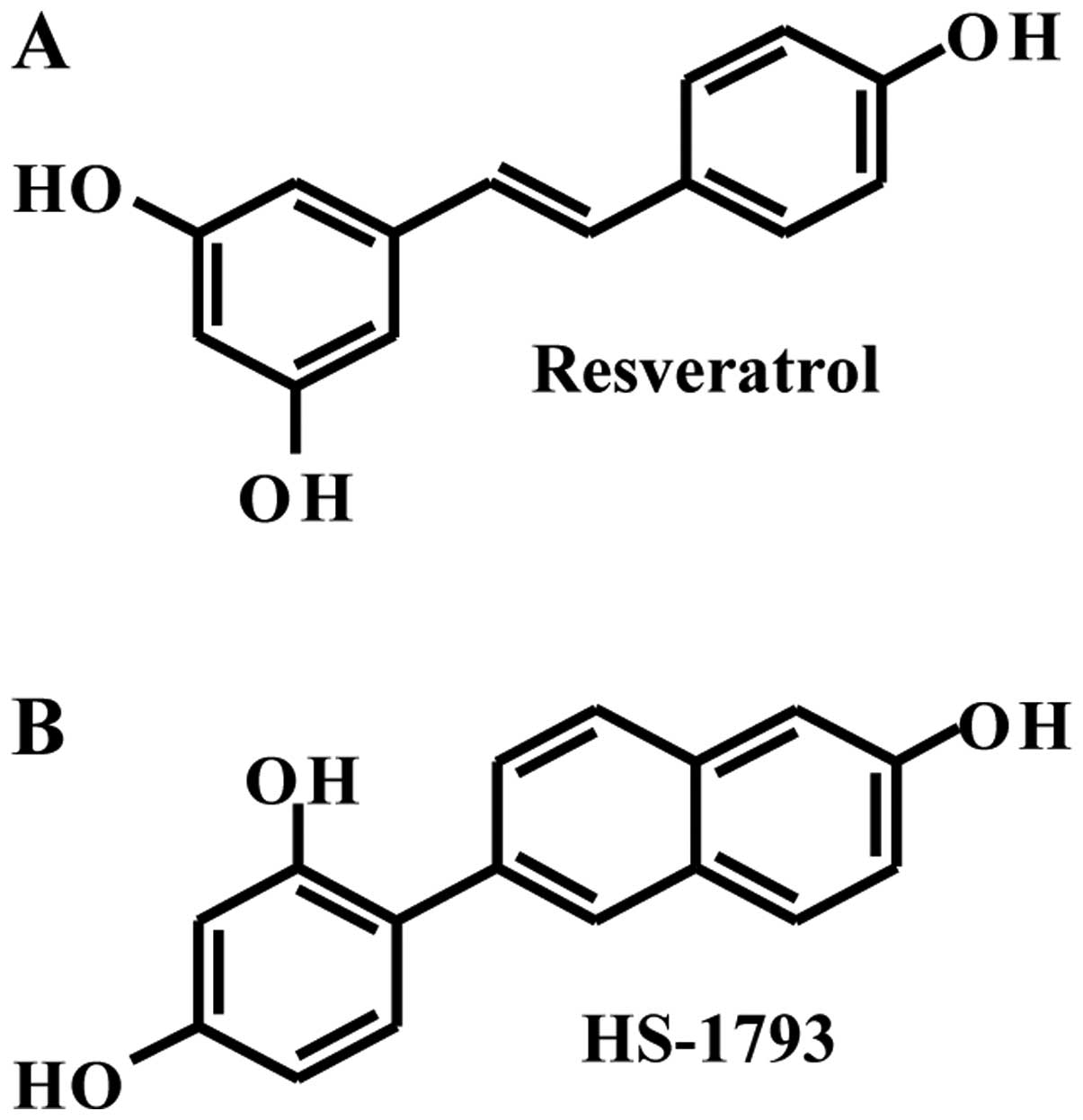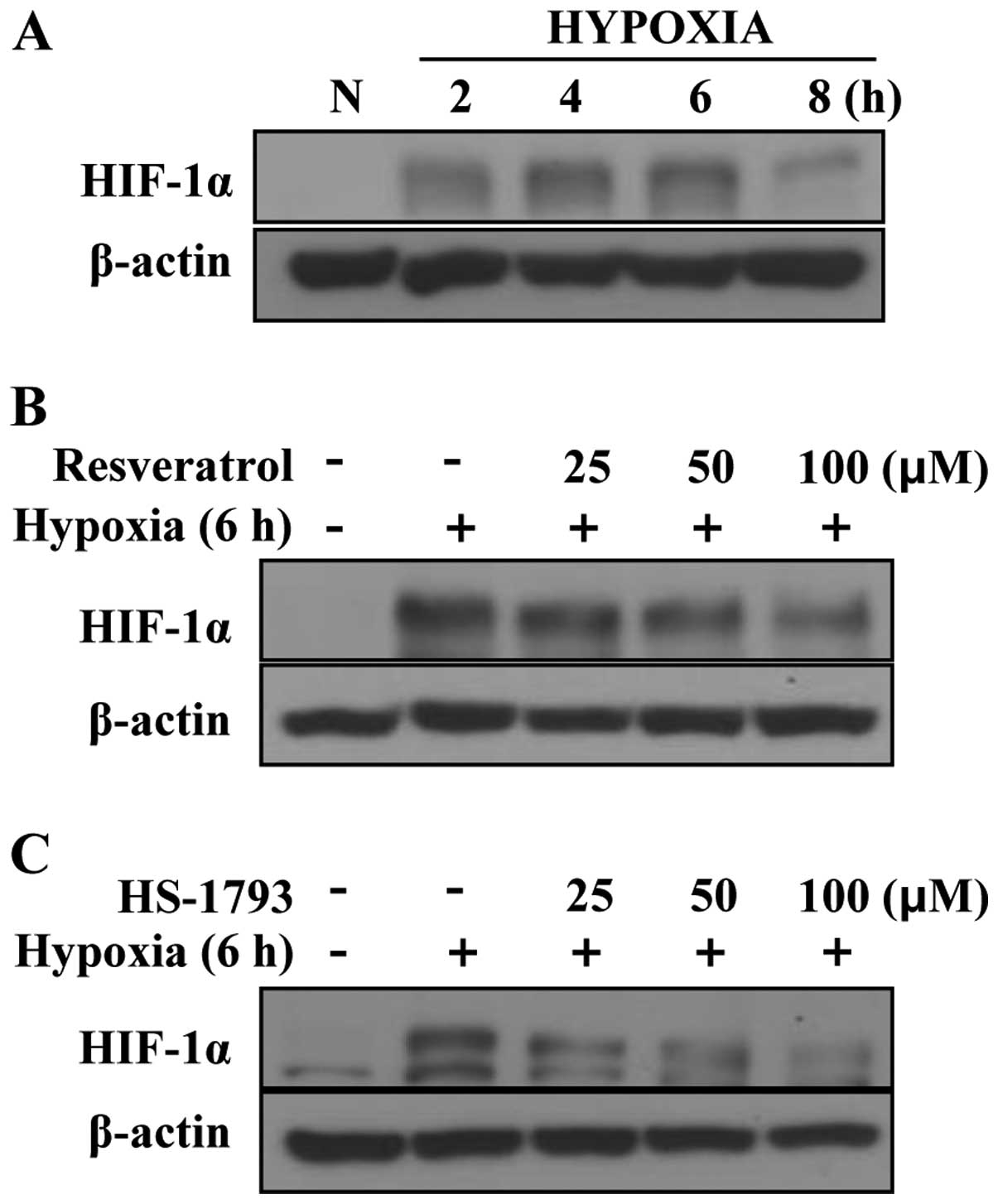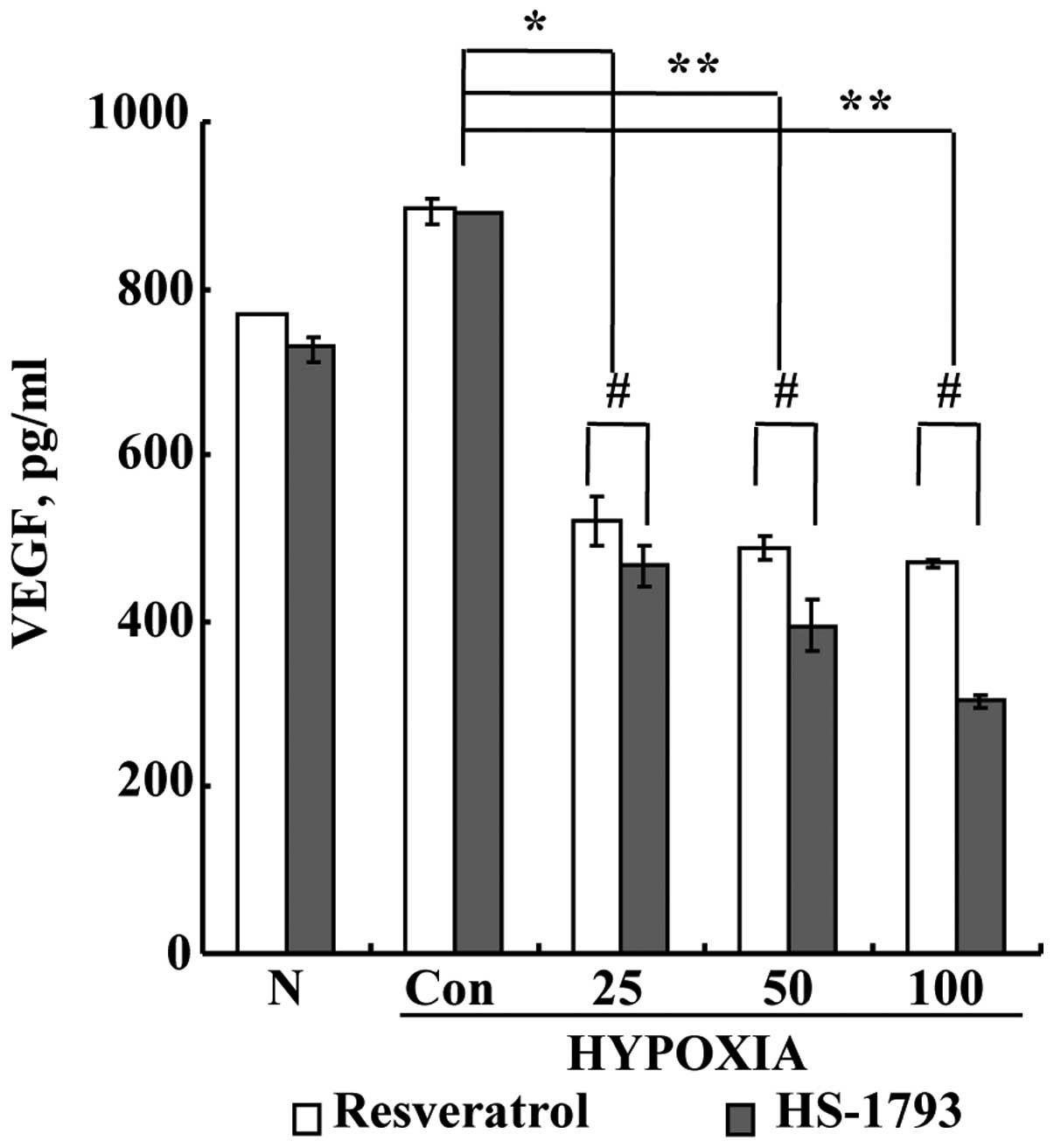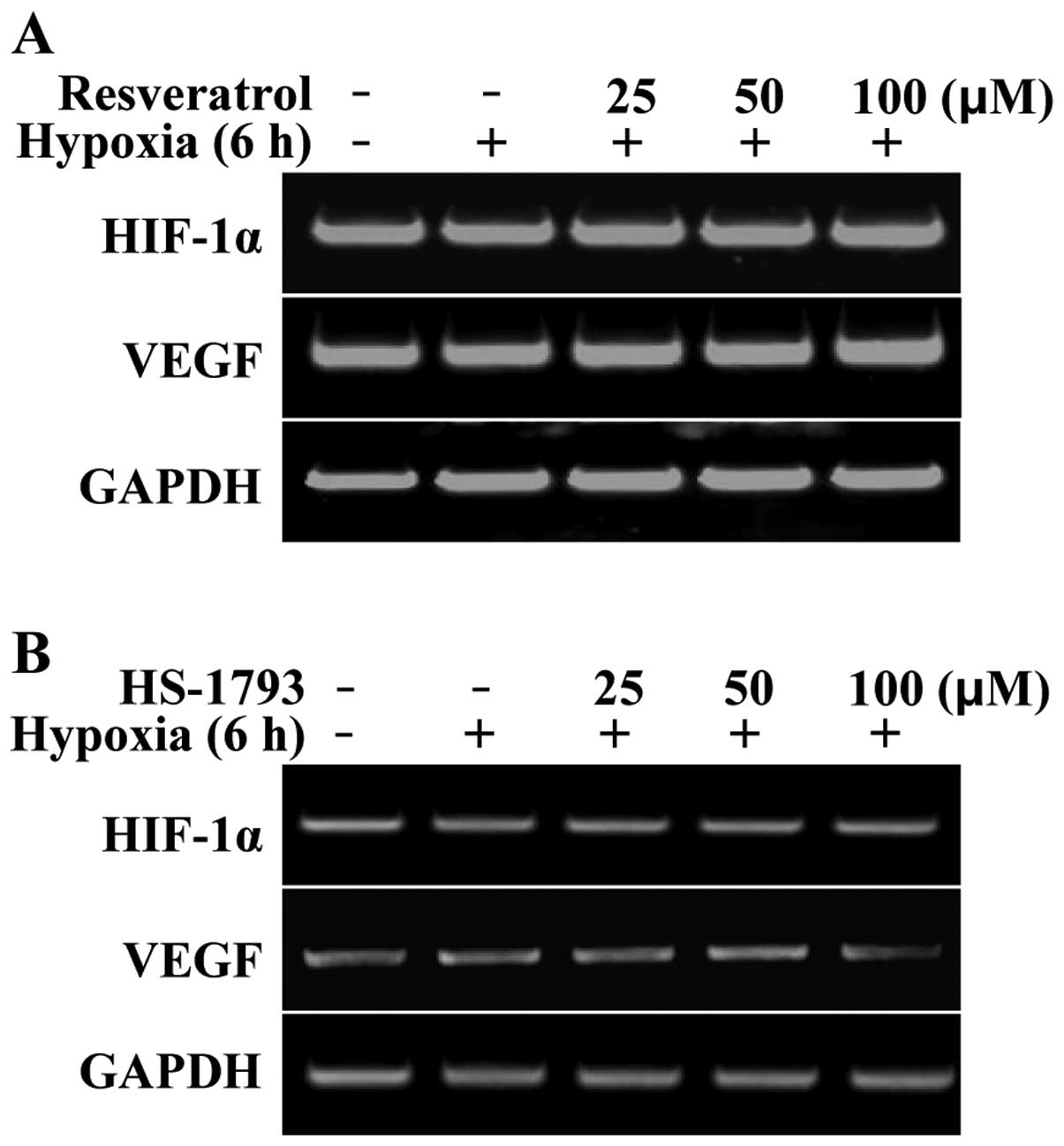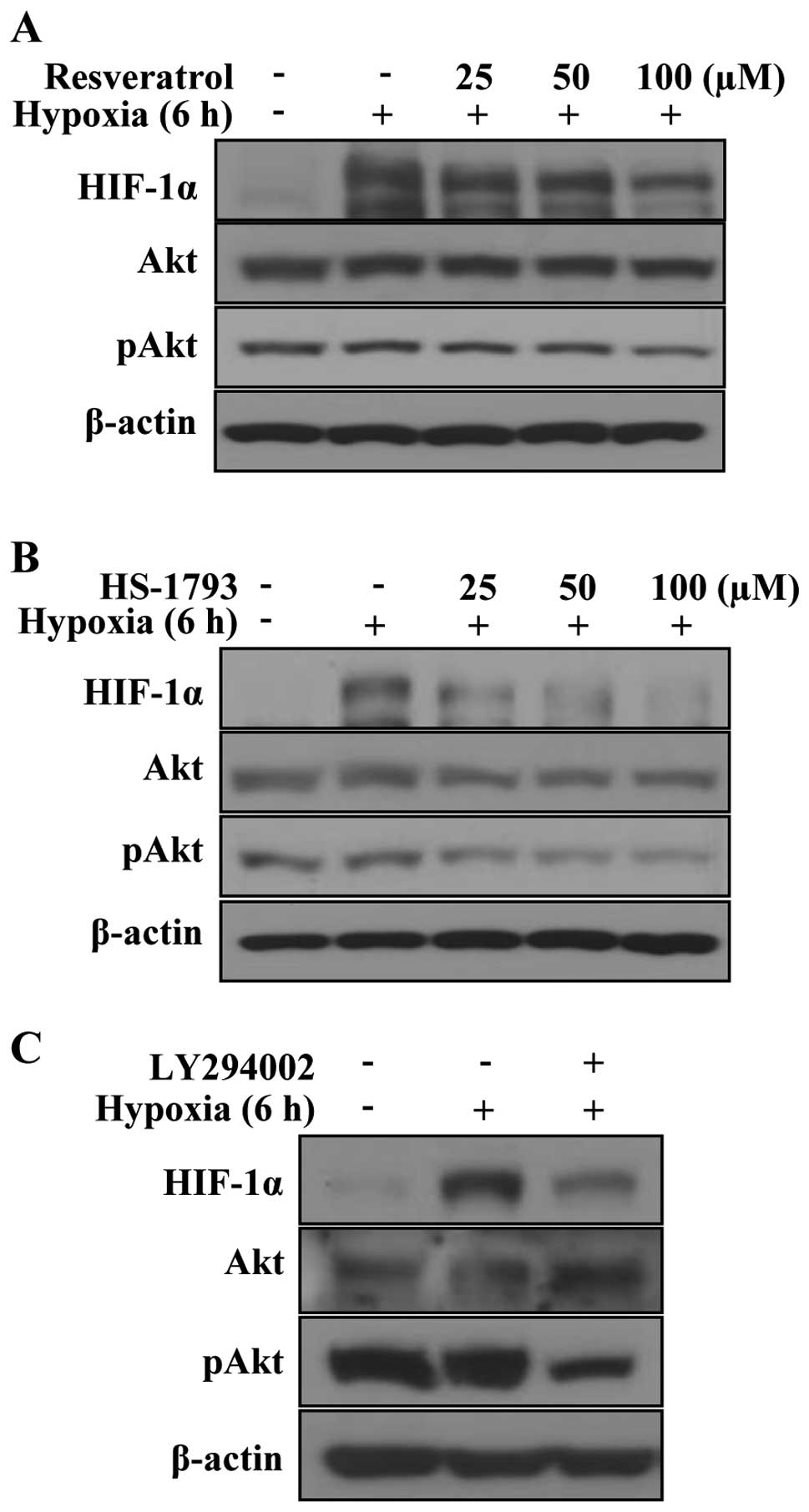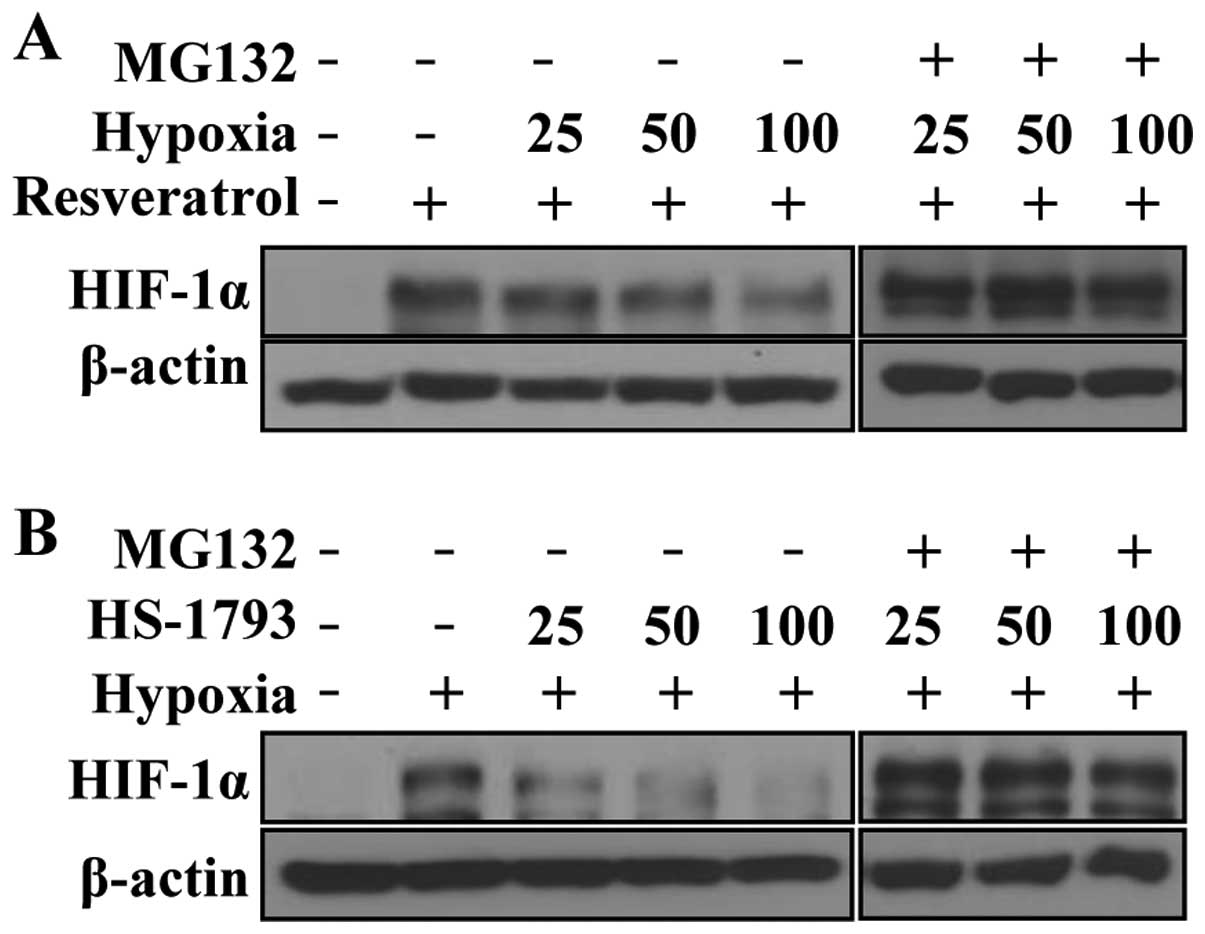|
1.
|
Semenza GL: Hypoxia and cancer. Cancer
Metastasis Rev. 26:223–224. 2007. View Article : Google Scholar
|
|
2.
|
Harris AL: Hypoxia - a key regulatory
factor in tumour growth. Nat Rev Cancer. 2:38–47. 2002. View Article : Google Scholar : PubMed/NCBI
|
|
3.
|
Semenza GL: Regulation of cancer cell
metabolism by hypoxia-inducible factor 1. Semin Cancer Biol.
19:12–16. 2009. View Article : Google Scholar : PubMed/NCBI
|
|
4.
|
Baek JH, Jang JE, Kang CM, Chung HY, Kim
ND and Kim KW: Hypoxia-induced VEGF enhances tumor survivability
via suppression of serum deprivation-induced apoptosis. Oncogene.
19:4621–4631. 2000. View Article : Google Scholar : PubMed/NCBI
|
|
5.
|
Semenza GL: Hypoxia-inducible factors:
mediators of cancer progression and targets for cancer therapy.
Trends Pharmacol Sci. 33:207–214. 2012. View Article : Google Scholar : PubMed/NCBI
|
|
6.
|
Al-Ubaidi FL, Schultz N, Egevad L,
Granfors T and Helleday T: Castration therapy of prostate cancer
results in downregulation of HIF-1alpha levels. Int J Radiat Oncol
Biol Phys. 82:1243–1248. 2012. View Article : Google Scholar : PubMed/NCBI
|
|
7.
|
Marignol L, Rivera-Figueroa K, Lynch T and
Hollywood D: Hypoxia, notch signalling, and prostate cancer. Nat
Rev Urol. 10:405–413. 2013. View Article : Google Scholar : PubMed/NCBI
|
|
8.
|
Szliszka E, Czuba ZP, Domino M, Mazur B,
Zydowicz G and Krol W: Ethanolic extract of propolis (EEP) enhances
the apoptosis-inducing potential of TRAIL in cancer cells.
Molecules. 14:738–754. 2009. View Article : Google Scholar : PubMed/NCBI
|
|
9.
|
Syed DN, Suh Y, Afaq F and Mukhtar H:
Dietary agents for chemoprevention of prostate cancer. Cancer Lett.
265:167–176. 2008. View Article : Google Scholar : PubMed/NCBI
|
|
10.
|
Santos JA, de Carvaho GS, Oliveira V,
Raposo NR and da Silva AD: Resveratrol and analogues: a review of
antioxidant activity and applications to human health. Recent Pat
Food Nutr Agric. 5:144–153. 2013. View Article : Google Scholar : PubMed/NCBI
|
|
11.
|
Benitez DA, Pozo-Guisado E,
Alvarez-Barrientos A, Fernandez-Salguero PM and Castellon EA:
Mechanisms involved in resveratrol-induced apoptosis and cell cycle
arrest in prostate cancer-derived cell lines. J Androl. 28:282–293.
2007. View Article : Google Scholar : PubMed/NCBI
|
|
12.
|
Cao Z, Fang J, Xia C, Shi X and Jiang BH:
trans-3,4,5′-Trihydroxystibene inhibits hypoxia-inducible factor
1alpha and vascular endothelial growth factor expression in human
ovarian cancer cells. Clin Cancer Res. 10:5253–5263. 2004.
|
|
13.
|
Zhang Q, Tang X, Lu QY, Zhang ZF, Brown J
and Le AD: Resveratrol inhibits hypoxia-induced accumulation of
hypoxiainducible factor-1alpha and VEGF expression in human tongue
squamous cell carcinoma and hepatoma cells. Mol Cancer Ther.
4:1465–1474. 2005. View Article : Google Scholar : PubMed/NCBI
|
|
14.
|
Park SY, Jeong KJ, Lee J, et al: Hypoxia
enhances LPA-induced HIF-1alpha and VEGF expression: their
inhibition by resveratrol. Cancer Lett. 258:63–69. 2007. View Article : Google Scholar : PubMed/NCBI
|
|
15.
|
Jeong SH, Lee JS, Jeong NY, et al: A novel
resveratrol analogue HS-1793 treatment overcomes the resistance
conferred by Bcl-2 and is associated with the formation of mature
PML nuclear bodies in renal clear cell carcinoma Caki-1 cells. Int
J Oncol. 35:1353–1360. 2009.
|
|
16.
|
Ha YM, Chung SW, Song S, Lee H, Suh H and
Chung HY: 4-(6-Hydroxy-2-naphthyl)-1,3-bezendiol: a potent, new
tyrosinase inhibitor. Biol Pharm Bull. 30:1711–1715. 2007.
View Article : Google Scholar : PubMed/NCBI
|
|
17.
|
Jeong SH, Hanh TM, Kim HK, et al: HS-1793,
a recently developed resveratrol analogue protects rat heart
against hypoxia/reoxygenation injury via attenuating mitochondrial
damage. Bioorg Med Chem Lett. 23:4225–4229. 2013. View Article : Google Scholar
|
|
18.
|
Um HJ, Bae JH, Park JW, et al:
Differential effects of resveratrol and novel resveratrol
derivative, HS-1793, on endoplasmic reticulum stress-mediated
apoptosis and Akt inactivation. Int J Oncol. 36:1007–1013.
2010.PubMed/NCBI
|
|
19.
|
Jeong SH, Song IS, Kim HK, et al: An
analogue of resveratrol HS-1793 exhibits anticancer activity
against MCF-7 cells via inhibition of mitochondrial biogenesis gene
expression. Mol Cells. 34:357–365. 2012. View Article : Google Scholar : PubMed/NCBI
|
|
20.
|
Kim HJ, Yang KM, Park YS, et al: The novel
resveratrol analogue HS-1793 induces apoptosis via the
mitochondrial pathway in murine breast cancer cells. Int J Oncol.
41:1628–1634. 2012.PubMed/NCBI
|
|
21.
|
Jeong SH, Jo WS, Song S, et al: A novel
resveratrol derivative, HS1793, overcomes the resistance conferred
by Bcl-2 in human leukemic U937 cells. Biochem Pharmacol.
77:1337–1347. 2009. View Article : Google Scholar
|
|
22.
|
Jeong MH, Yang KM, Choi YJ, et al:
Resveratrol analog, HS-1793 enhance anti-tumor immunity by reducing
the CD4+CD25+ regulatory T cells in FM3A
tumor bearing mice. Int Immunopharmacol. 14:328–333. 2012.
View Article : Google Scholar : PubMed/NCBI
|
|
23.
|
Choi YJ, Yang KM, Kim SD, et al:
Resveratrol analogue HS-1793 induces the modulation of
tumor-derived T cells. Exp Ther Med. 3:592–598. 2012.PubMed/NCBI
|
|
24.
|
Jeong NY, Yoon YG, Rho JH, et al: The
novel resveratrol analog HS-1793-induced polyploid LNCaP prostate
cancer cells are vulnerable to downregulation of Bcl-xL. Int J
Oncol. 38:1597–1604. 2011.PubMed/NCBI
|
|
25.
|
Semenza GL: Hypoxia, clonal selection, and
the role of HIF-1 in tumor progression. Crit Rev Biochem Mol Biol.
35:71–103. 2000. View Article : Google Scholar : PubMed/NCBI
|
|
26.
|
Semenza G: Signal transduction to
hypoxia-inducible factor 1. Biochem Pharmacol. 64:993–998. 2002.
View Article : Google Scholar : PubMed/NCBI
|
|
27.
|
Wu H, Liang X, Fang Y, Qin X, Zhang Y and
Liu J: Resveratrol inhibits hypoxia-induced metastasis potential
enhancement by restricting hypoxia-induced factor-1 alpha
expression in colon carcinoma cells. Biomed Pharmacother.
62:613–621. 2008. View Article : Google Scholar
|
|
28.
|
Copple BL, Bustamante JJ, Welch TP, Kim ND
and Moon JO: Hypoxia-inducible factor-dependent production of
profibrotic mediators by hypoxic hepatocytes. Liver Int.
29:1010–1021. 2009. View Article : Google Scholar : PubMed/NCBI
|
|
29.
|
Yasuda H: Solid tumor physiology and
hypoxia-induced chemo/radio-resistance: novel strategy for cancer
therapy: nitric oxide donor as a therapeutic enhancer. Nitric
Oxide. 19:205–216. 2008. View Article : Google Scholar
|
|
30.
|
Thorpe JF, Jain S, Marczylo TH, Gescher
AJ, Steward WP and Mellon JK: A review of phase III clinical trials
of prostate cancer chemoprevention. Ann R Coll Surg Engl.
89:207–211. 2007. View Article : Google Scholar : PubMed/NCBI
|
|
31.
|
Fernandez PL, Hernandez L, Farre X, Campo
E and Cardesa A: Alterations of cell cycle-regulatory genes in
prostate cancer. Pathobiology. 70:1–10. 2002. View Article : Google Scholar : PubMed/NCBI
|
|
32.
|
Antonarakis ES and Carducci MA: Targeting
angiogenesis for the treatment of prostate cancer. Expert Opin Ther
Targets. 16:365–376. 2012. View Article : Google Scholar : PubMed/NCBI
|
|
33.
|
Cottart CH, Nivet-Antoine V and Beaudeux
JL: Review of recent data on the metabolism, biological effects,
and toxicity of resveratrol in humans. Mol Nutr Food Res June.
6:doi: 10.1002/mnfr.201200589. 2013.PubMed/NCBI
|
|
34.
|
Arvelo F and Cotte C: Hypoxia in cancer
malignity. Review. Invest Clin. 50:529–546. 2009.(In Spanish).
|
|
35.
|
Mirzoeva S, Kim ND, Chiu K, Franzen CA,
Bergan RC and Pelling JC: Inhibition of HIF-1 alpha and VEGF
expression by the chemopreventive bioflavonoid apigenin is
accompanied by Akt inhibition in human prostate carcinoma PC3-M
cells. Mol Carcinog. 47:686–700. 2008. View Article : Google Scholar : PubMed/NCBI
|
|
36.
|
Krishnamachary B, Berg-Dixon S, Kelly B,
et al: Regulation of colon carcinoma cell invasion by
hypoxia-inducible factor 1. Cancer Res. 63:1138–1143.
2003.PubMed/NCBI
|















